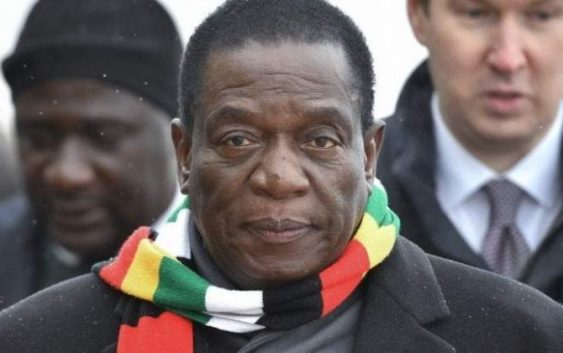- WICKNELL CHIVAYO left school at 15
- DISGRUNTLED Zimbabwe police stage uniform protest.
- MNANGAGWA wife Auxillia drops charges against nine women who boed her in Manicaland
- O.J. Simpson dies of cancer , aged 76.
- South Africa ANC is the cause of ZIMBABWE troubles claims Zimbabwe opposition politician Job Sikhala
ZIMBABWE CHIEFS’ COUNCIL PRESIDENT Fortune Charumbira has claimed that traditional leaders are not bound by the Constitution because the chieftainship institution was in existence before the country’s charter was crafted.

ZIMBABWE CHIEFS’ CUNCIL PRESIDENT Fortune Charumbira has claimed that traditional leaders are not bound by the Constitution because the chieftainship institution was in existence before the country’s charter was crafted.
After telling delegates at the Zanu-PF annual conference that chiefs would not leave the ruling party, he told NewsDay yesterday that he was openly violating the Constitution because chiefs could not be bound by any law as their institution was there before laws were made.
“What Constitution? What came first, the Constitution or the chiefs? We came first as chiefs before the Constitution,” he said.
“I exhausted that in my speech and all those criticising me do not know anything,” he added while insisting there was nothing amiss about his declaration of support for Zanu-PF.
On Friday last week, Charumbira told delegates at the Zanu-PF conference in Bindura that the traditional leaders were the owners of the party. “We come as owners of the party. The reason for the existence of Zanu-PF is all about traditional leadership and it is about injustice,” Chief Charumbira said.
Chapter 15.2 of the Constitution stipulates that traditional leaders are not allowed to bear allegiance to any political party or to participate in partisan politics.
Zanu-PF secretary for legal affairs Munyaradzi Paul Mangwana claimed that although chiefs were not allowed to dabble in politics, they had a right to express their views.
“They are saying they associate themselves with the philosophies which underpin Zanu-PF. Every political party can also articulate its philosophies in line with what the traditional leaders want,” he said.
“They are not supposed to interfere in the political space, but they have a right to participate and associate themselves with a political party of their choice. You have to balance between the right to interfere in the political space and express a view which is in line with a particular political part.” – NewsDay Zimbabwe